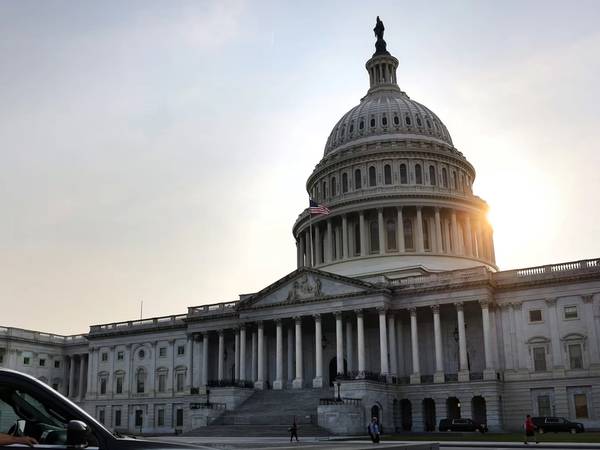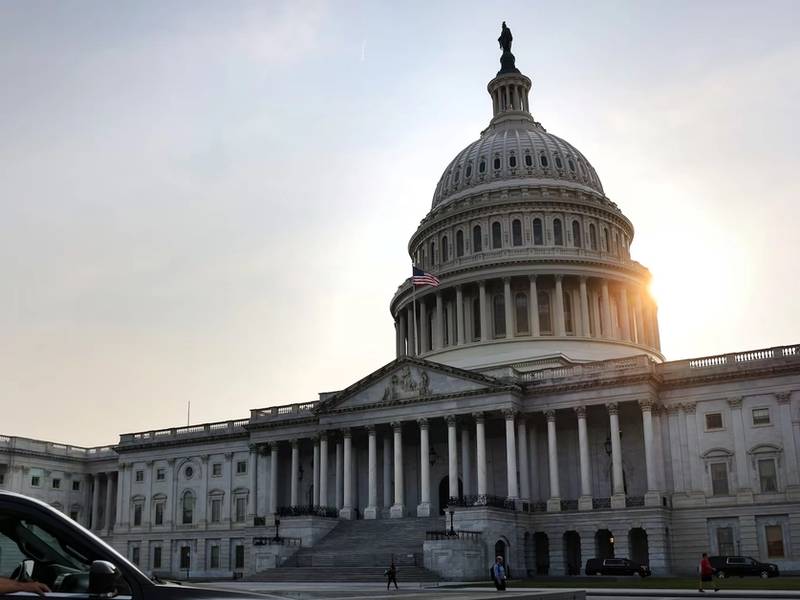Several Iran-related bills passed the committee stage of the US Senate Tuesday that enhance sanctions on Iran’s leaders and require the President to sanction ships, ports, and refineries carrying or processing Iranian oil.
The bills have to pass a full Senate vote and be signed by the President to become law. But their sponsors were relieved to see their measures finally get over the Senate Foreign Relations Committee (SFRC) hurdle.
“I'm glad my End IT Act, the SHIP Act, and the MASHA Act passed out of committee today,” Senator Jim Risch (R-Idaho), ranking member of the Senate Foreign Relations Committee, posted shortly after the closed door committee meeting. “The Middle East is in unprecedented turmoil and weak U.S. policy has failed to re-establish deterrence with Iran. It’s past time to act, and Congress has a role to play.”
Of the bills that were marked up in the SFRC Tuesday, MAHSA Act was perhaps the most watched and the most controversial, having been held back from the committee for a long time after it passed the House –and now said to be heavily ‘diluted’ before being sent to the floor for vote.
The bill, titled the Mahsa Amini Human Rights and Security Accountability Act, was first introduced to the US Congress in January 2023, four months after the start of nationwide protests in Iran. The bill was a response to the regime’s brutal crackdown of the uprising, and was named after the young woman whose killing by the police started it all.
In its original version, the Mahsa Act required the US government to impose applicable sanctions on Iran’s Supreme Leader, Ali Khamenei, his Office and his appointees, Iran’s president and a number of entities affiliated with Khamenei. It also required the US President to report to Congress every year whether those officials should remain under existing sanctions, making it much harder for the current and future administrations to unilaterally lift the sanctions.
“The marked up Senate version of the MAHSA Act that passed today is not the real MAHSA Act that passed the House almost unanimously with 410 votes,” wrote Nick Nikbakht, an Iranian-American businessman and activist, on X . “I have been informed that Senator Cardin has fundamentally changed the bill to dilute and give Biden admin loopholes to not apply any sanctions against the terrorist regime in Iran!”
Senator Cardin (D-MD), chairman of the SFRC has been criticized by Iranian-American activists and critics of Joe Biden for his delay in handling of the MAHSA Act. The other bills marked up by Cardin Tuesday seem to have passed without much change.
Less discussed but perhaps no less consequential is the Stop Harboring Iranian Petroleum Act (SHIP Act), which Imposes sanctions on ports and refineries that process Iranian oil in violation of US sanctions.
The other bills that passed the SFRC Tuesday were the MISSILES Act and the End Iranian Terrorism Act (END IT Act) –the former sanctioning those involved in Iran's missile or drone programs, and the latter makes it harder for US administrations to issue sanction waivers to Iran, as long as it “funds terrorism.”
Collectively, these acts are seen not just as attempts to pressure the Iranian regime, but as reactions to Biden’s Iran policy, which his critics in the Congress say is too forgiving.
“Iran, unchecked by the Biden Administration’s policies of appeasement, has expanded its global operations,” Senator Risch said last week. “It is past time the Biden Administration changed course and aggressively targeted Iranian assets. It would not be that tough to do… but they have a different view of Iran than our side does.”

